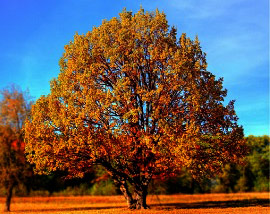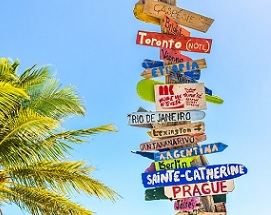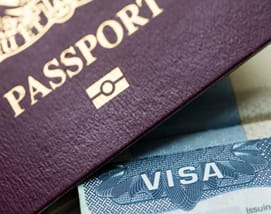Turkey, also known as the Republic of Turkey, is located between Europe and Asia and is home to some of the most unique destinations. It is bordered by Iran, Armenia, Syria, Iraq, Greece, and Bulgaria.
A mecca for history and art lovers, Turkey, has a timeless aura. Hagia Sophia, a museum, is one of the few well-preserved ancient structures in the world that will leave you awestruck. Ephesus is home to Greek and Roman ruins and a temple, theatre, and a library. Ani, the silk road city, will give you a glimpse of Turkey’s earlier days of trade and commerce, while Topkapi Palace lets you witness the lavish Ottoman Empire.
Turkey is not just for lovers of classics and history; it is equally delightful for nature and adventure enthusiasts. Cappadocia, a rock valley, is a must-visit for hot air balloons. It has been formed over millennia by the natural agents of wind and water. It is a perfect place for hiking and watching spellbinding sunsets. Pamukkale is a natural wonder that will mesmerise you with white terraces and green landscapes.
Along with mountains, Turkey also boasts a magnificent coastline where you can cruise on a yacht and enjoy beautiful sunsets. Apart from those of Turkish descent, Turkey is also home to the Kurdish, Armenians, and Greeks. Turkey’s official language is Turkish.
Turkey is situated between Europe and Asia, creating a link between the two continents. The Asian part of Turkey is called Anatolia (Asia Minor), and the European part is called Thrace. Anatolia is the birthplace of many great civilisations. It has also been a centre of commerce and trade due to its connection to three continents and the sea surrounding it on three sides.
Turkey is very mountainous with about 1/4th of its surface above 4,000 metres. Its highest mountain Mount Ararat stands 5,165 metres tall.
The diverse regions of Turkey have different climates. The weather system on its coast is different from that of the interior. The Aegean and Mediterranean coasts have cool, rainy winters and hot, dry summers. The rainfall is lesser in the East, and the Black sea coast receives the maximum rainfall. The eastern part of the coast is the only region of Turkey that receives rainfall throughout the year. The weather in Turkey is an essential factor to determine the time of your trip. Let us take a look at the best time to visit Turkey and the general weather during these times.
Spring/Good season: April-May
Spring in Turkey is neither too hot nor too cold. The weather is pleasant and close to ideal. You will see flowers all across the country and pleasing scenery in the cities and the outskirts. This is one of the best times to visit Istanbul.
You can attend the International Istanbul Film Festival in April and the Hidrellez music festival in May.
High tourist season: June-September
With the temperature in Turkey at its highest, this is the time preferred by most tourists. The weather on the Aegean and Mediterranean coast is quite pleasant. However, it gets hot as one moves towards the interior parts. Thus, this might not be the best time to travel if you want to experience the heritage. Since this is the peak season due to Turkish and international holidays, the prices are usually high, and you would need to book in advance.
You can do many fun activities during the Turkish summer, such as a cruise in Bodrum or a beach stay in a coastal resort. Cappadocia is usually quiet during this time, making it the perfect time to visit for a trek or a hot air balloon ride. You can also visit the Ballet Festival in Aspendos in June/July.
Good season: September-October
The fall season sets in September. The days are shorter, but the experience will be pleasant during this time. Limited rain makes this the perfect time for exploring the outdoors. Since this is an off-season, the accommodation will be less expensive, and you can expect smaller crowds.
This is the best time to explore the silk route. Hiking along the Lycian way to explore the turquoise coast is a must-do. The International Wine Festival takes place in October at Cappadocia and is a must-attend!
Low season: November-March
November to March marks the winter season and is chilly, except for the southeast. There are chances of snowfall in most places, including Cappadocia, especially in January and February.
Many resorts might be closed, and it may not be the best time for the beaches. However, this is the most incredible time for skiing enthusiasts. Istanbul should also be on your list if you can brave the cold! You can comfortably explore the city without the bustle of crowds. The Mevlana and Whirling Dervish festival happens in Konya in December. It is a magnificent celebration of Rumi, a must-visit for all literary enthusiasts.
Once you find a suitable time and weather, you’re good to go to Turkey!
Turkey has been home to some of the earliest settlers known to mankind. Then came the many civilisations, from ancient Greeks to the Byzantine era to the powerful Ottoman rule. The country is no stranger to travellers and visitors of all kind, and modern-day Turkey tourism is unbelievably cultural. Discover it all for yourself, at monuments like Hagia Sophia or Topkapi Palace, in the ancient relics of Ephesus or Aspendos, in traditional Turkish baths or the mystic faith of Sufism.
Then there’s the brilliant food, the art and architecture, traditional crafts, even sports like camel wrestling and the equestrian Jereed, that are all unique to Turkey. If you like experiencing new cultures, Turkey tours by SOTC have got you covered.
Turkey is an extraordinary destination boasting mountains, beaches, salt pools, desserts, kebabs, hot air balloons and turquoise coasts. While you plan your trip, make sure you follow these simple tips as a Turkey travel guide to ensure a comfortable and safe stay.
1) Learn a little bit of Turkish
In the outskirts of the country, people are not well-versed with the English language. Learning the Turkish words for ‘good morning’, ‘yes’, ‘no’, ‘hello’, ‘welcome’, and ‘thank you’ can come in handy when speaking to locals. You may consider using Google Translate.
2) Dress appropriately
While Turkey is a secular nation where women can wear whatever they wish, you wouldn’t want to hurt the local sentiments at certain social places. You will need to cover your head at religious sites such as mosques. So you must carry a scarf with you at all times in your handbag.
3) Research and plan your itinerary
Opting for a Turkey tourism package can be an excellent way to not miss out on the popular locations and the important events occurring during your visit. Make sure you have a checklist of all the places you wish to see before starting your journey.
4) Respect the culture
Turkey is a secular state where people can practice their religion as they wish to. Take care not to hurt any locals and their religious sentiments. Stay away from conversing about sensitive topics like politics and religion and avoid speaking ill of their politically-important personalities. Respect the locals and the Turkish culture, and we are sure you will have a great time in this welcoming land.
Apart from these four tips, make sure you carry an international adapter so that you have your phone charged at all times. Carry enough cash, get vaccinated, and use public transport wherever possible. Turkey is a safe country, and you can have a great time by planning your trip with the support of Turkey Tour packages by SOTC











